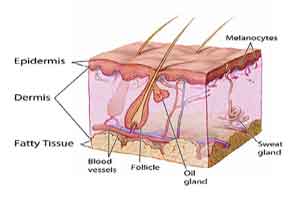- Home
- Editorial
- News
- Practice Guidelines
- Anesthesiology Guidelines
- Cancer Guidelines
- Cardiac Sciences Guidelines
- Critical Care Guidelines
- Dentistry Guidelines
- Dermatology Guidelines
- Diabetes and Endo Guidelines
- Diagnostics Guidelines
- ENT Guidelines
- Featured Practice Guidelines
- Gastroenterology Guidelines
- Geriatrics Guidelines
- Medicine Guidelines
- Nephrology Guidelines
- Neurosciences Guidelines
- Obs and Gynae Guidelines
- Ophthalmology Guidelines
- Orthopaedics Guidelines
- Paediatrics Guidelines
- Psychiatry Guidelines
- Pulmonology Guidelines
- Radiology Guidelines
- Surgery Guidelines
- Urology Guidelines
New Atopic Dermatitis Yardstick provides practical guidance and management insights

Patients with atopic dermatitis (AD) - also known as eczema - often face a tough, uphill battle for treatment. Symptoms include severe itching, scaly rashes, extreme dry skin and inflammation. Those who suffer from AD spend sleepless, itchy nights fearing they have nowhere to turn and their symptoms may never resolve. This creates therapeutic challenges for clinicians treating AD
According to a new yardstick published in Annals of Allergy, Asthma and Immunology, the scientific journal of the American College of Allergy, Asthma and Immunology (ACAAI) treatment for AD has changed a lot in the last few years. New treatments - including new drugs - are now available and can offer relief.
"The Atopic Dermatitis Yardstick was written by AD experts who are allergists and dermatologists because we want physicians who see patients with AD on a regular basis to know there are effective treatment options available," says allergist Mark Boguniewicz, MD, ACAAI Fellow and lead author of the yardstick. "In the yardstick, we cover the challenges and barriers to treatment success. We offer definitions of disease severity, review treatment failures, address treatment in a step wise fashion and cover the emerging science and implications for new therapies." The yardstick has practical recommendations for physicians about which medications are appropriate at which stage of diagnosis.
Itching is the hallmark of AD, and the cycle of itching and scratching makes the condition worse because it causes damage to the skin and often creates secondary infections, which can be serious. AD patients are at increased risk, not only for skin infections but, according to a recent study, also for multi-organ and systemic infections. Patients with AD can present with a range of disease severity, from mild intermittent disease to severe difficult-to-control disease.
"All patients must keep their skin highly moisturized, regardless of the activity or severity of their disease" says allergist Luz Fonacier, MD, ACAAI board member and co-author of the yardstick. "We emphasize throughout the yardstick that even when patients step up to stronger medications, they should still continue basic treatment of bathing with warm water followed immediately with heavy moisturization, i.e. soak and seal."
The last few years have seen the introduction of targeted therapies, also known as "precision medicine". Two new medications have recently been approved for AD. The first, crisaborole, is an ointment that reduces itching, redness and swelling of the skin. It is the first anti-inflammatory medication to be approved for the treatment of mild to moderate AD in more than 15 years. It is approved for patients 2 years of age or older. Dupilumab, the second new medication, is a biologic therapy given by injection for patients 18 years or older with moderate to severe AD who haven't responded to, or can't use topical medications.
"There are effective medications available that help relieve AD symptoms and now can also target some of the underlying mechanisms of the disease," says Dr. Fonacier. "People with AD have been frustrated by the limitations of existing treatments. We're very excited by the new medications which were developed based on better understanding of atopic dermatitis. We expect additional therapies to be approved soon. Allergists have the right training and expertise to diagnose AD, and to offer relief with the right treatments. We're glad we can add these treatments to our arsenal of weapons to combat the symptoms of AD."

Disclaimer: This site is primarily intended for healthcare professionals. Any content/information on this website does not replace the advice of medical and/or health professionals and should not be construed as medical/diagnostic advice/endorsement or prescription. Use of this site is subject to our terms of use, privacy policy, advertisement policy. © 2020 Minerva Medical Treatment Pvt Ltd